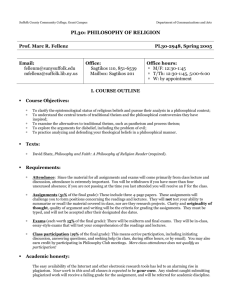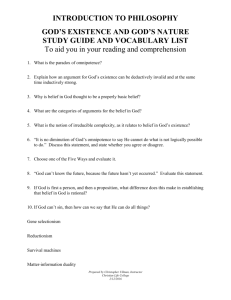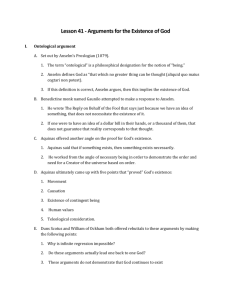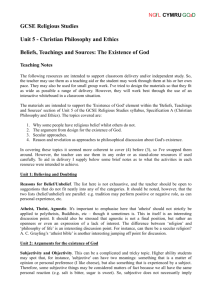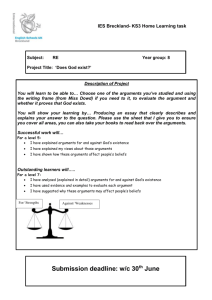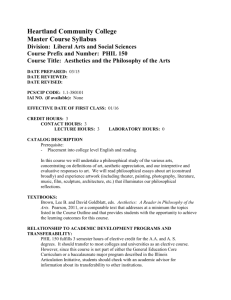PLC – RE - Little Heath Sixth Form
advertisement
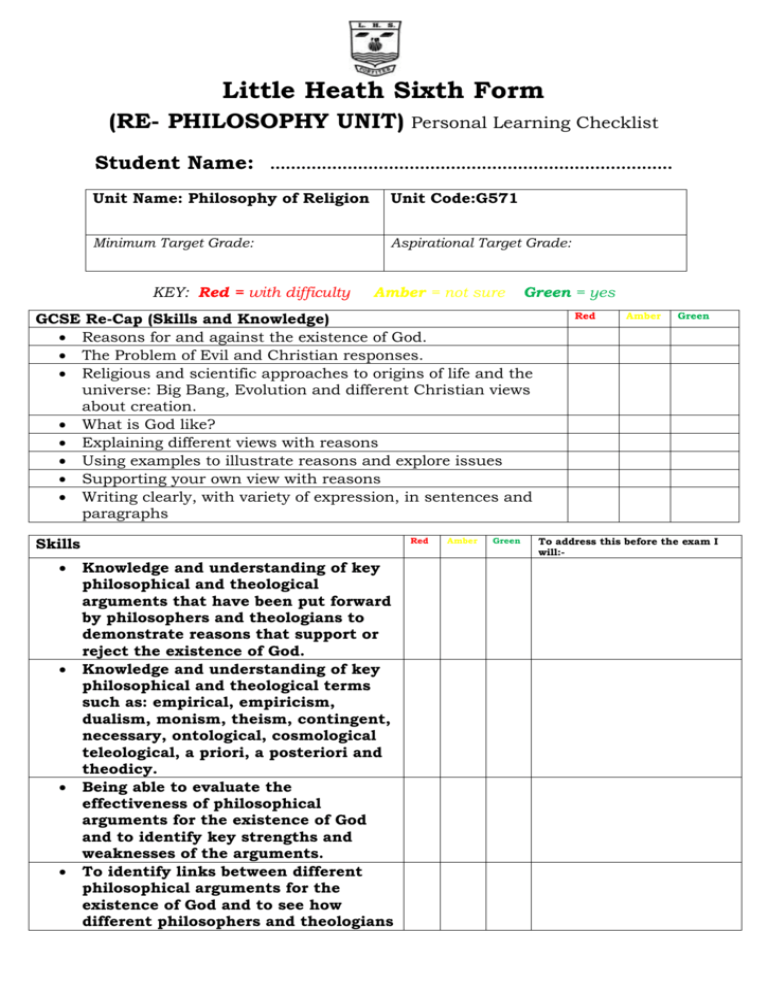
Little Heath Sixth Form (RE- PHILOSOPHY UNIT) Personal Learning Checklist Student Name: ……………………….…………………………………..……… Unit Name: Philosophy of Religion Unit Code:G571 Minimum Target Grade: Aspirational Target Grade: KEY: Red = with difficulty Amber = not sure Green = yes GCSE Re-Cap (Skills and Knowledge) Reasons for and against the existence of God. The Problem of Evil and Christian responses. Religious and scientific approaches to origins of life and the universe: Big Bang, Evolution and different Christian views about creation. What is God like? Explaining different views with reasons Using examples to illustrate reasons and explore issues Supporting your own view with reasons Writing clearly, with variety of expression, in sentences and paragraphs Skills Red Knowledge and understanding of key philosophical and theological arguments that have been put forward by philosophers and theologians to demonstrate reasons that support or reject the existence of God. Knowledge and understanding of key philosophical and theological terms such as: empirical, empiricism, dualism, monism, theism, contingent, necessary, ontological, cosmological teleological, a priori, a posteriori and theodicy. Being able to evaluate the effectiveness of philosophical arguments for the existence of God and to identify key strengths and weaknesses of the arguments. To identify links between different philosophical arguments for the existence of God and to see how different philosophers and theologians Amber Green Red Amber Green To address this before the exam I will:- influence each other. The ability to see things from multiple perspectives and to understand ideas and concepts that might not match with your own views about a given topic. Being able to apply your knowledge and understanding of the specification to effectively answer AS examination questions. Knowledge/Specification Ancient Greek influences on the philosophy of religion: Plato: the Analogy/Myth of the cave. Ancient Greek influences on the philosophy of religion: Plato: the concept of the Forms; the Form of the Good. Ancient Greek influences on the philosophy of religion: Aristotle: ideas about cause and purpose in relation to God. Judaeo-Christian influences on philosophy of religion: The concept of God as creator Judaeo-Christian influences on the philosophy of religion: The goodness of God. Traditional arguments for the existence of God: The Ontological Argument from Anselm and Descartes; challenges from Gaunilo and Kant. Knowledge/Specification (continued) Traditional arguments for the existence of God: The Cosmological Argument from Aquinas and Copleston; challenges from Hume and Russell. Traditional arguments for the existence of God: The Moral Argument from Kant: psychological challenges from Freud. Challenges to religious belief: The problem of evil: the theodicies of Augustine and Irenaeus. Red Amber Green To address this before the exam I will:- Challenges to religious belief: Religion and science: Creationism and the Big Bang theory; Darwinism and evolutionary theory, ‘Intelligent Design’ and ‘Irreducible Complexity’. REVISION Use the information on this checklist to make revision cards and notes Grade tracking: Grade Date Grade Date Grade Date Grade Date Grade Date Grade Date Note: You should discuss this checklist regularly with your subject teacher/mentor

